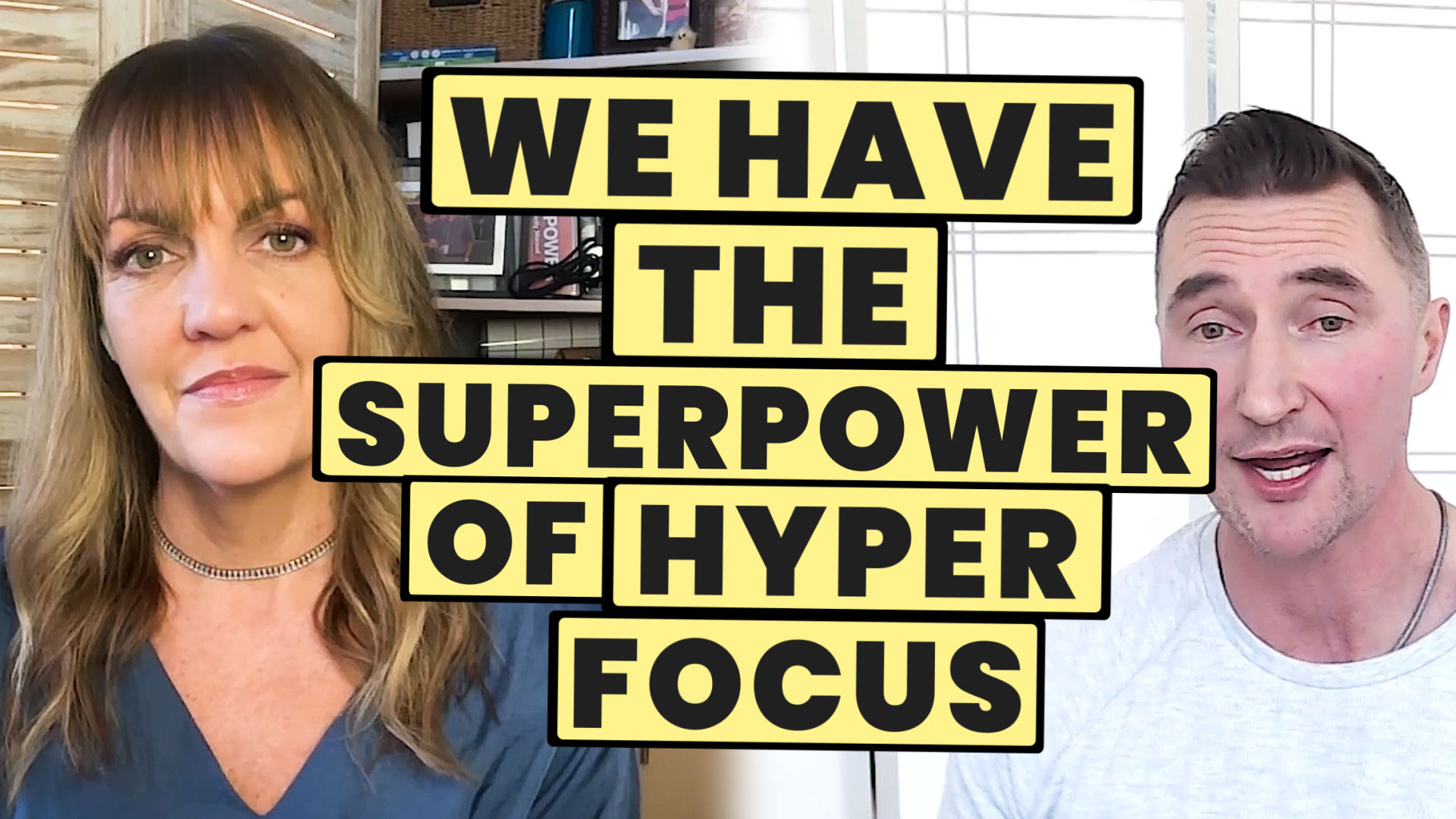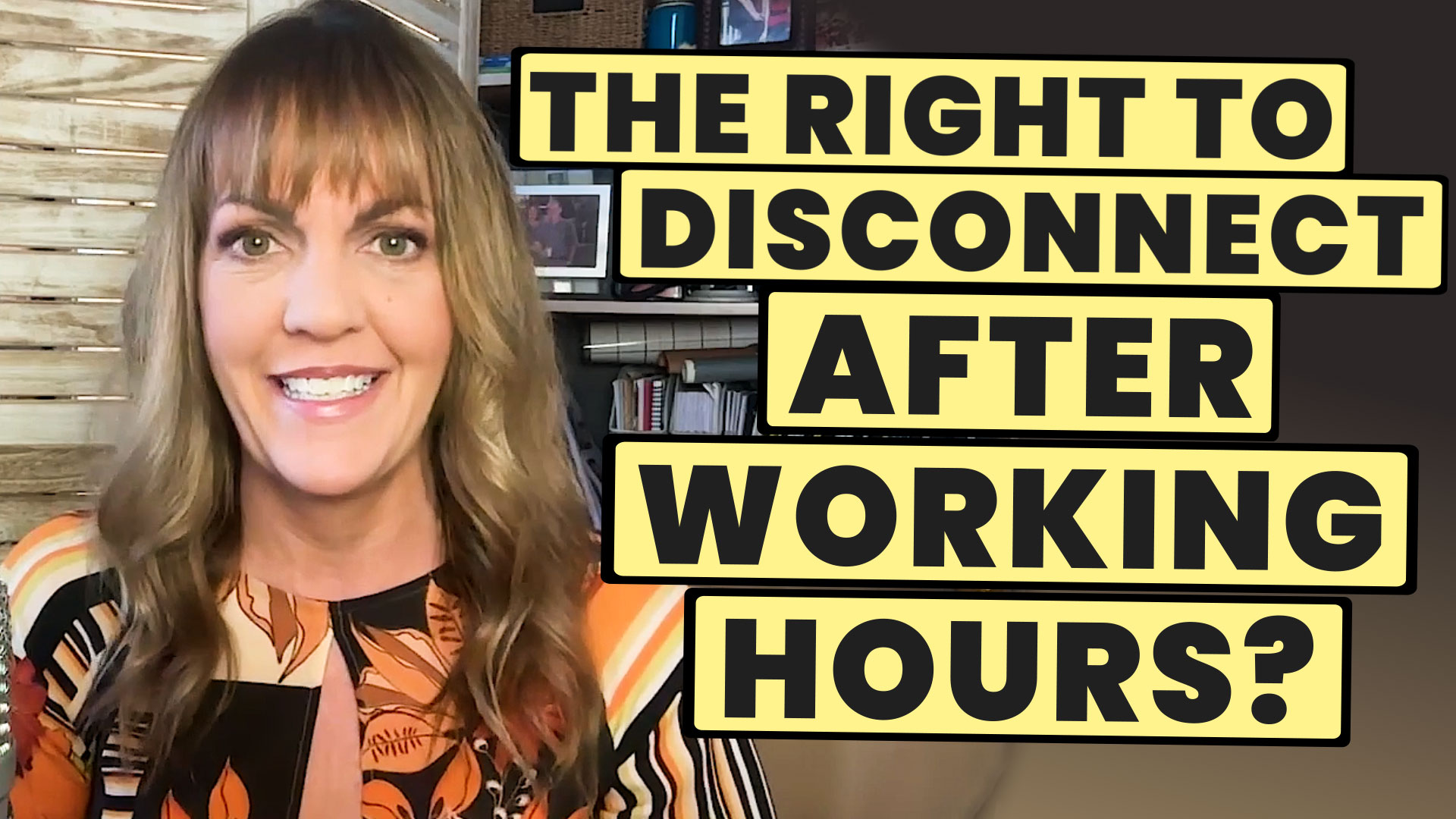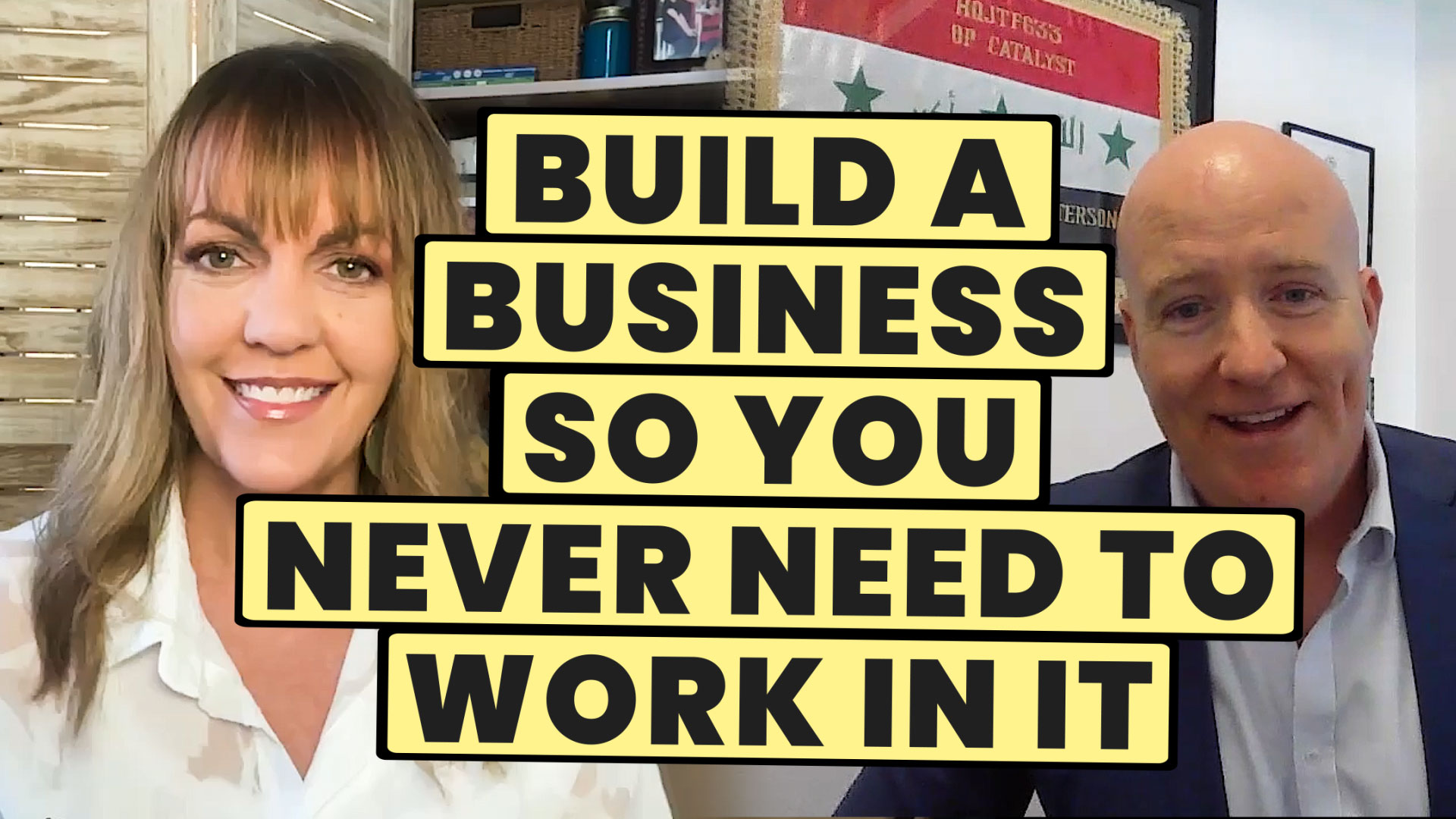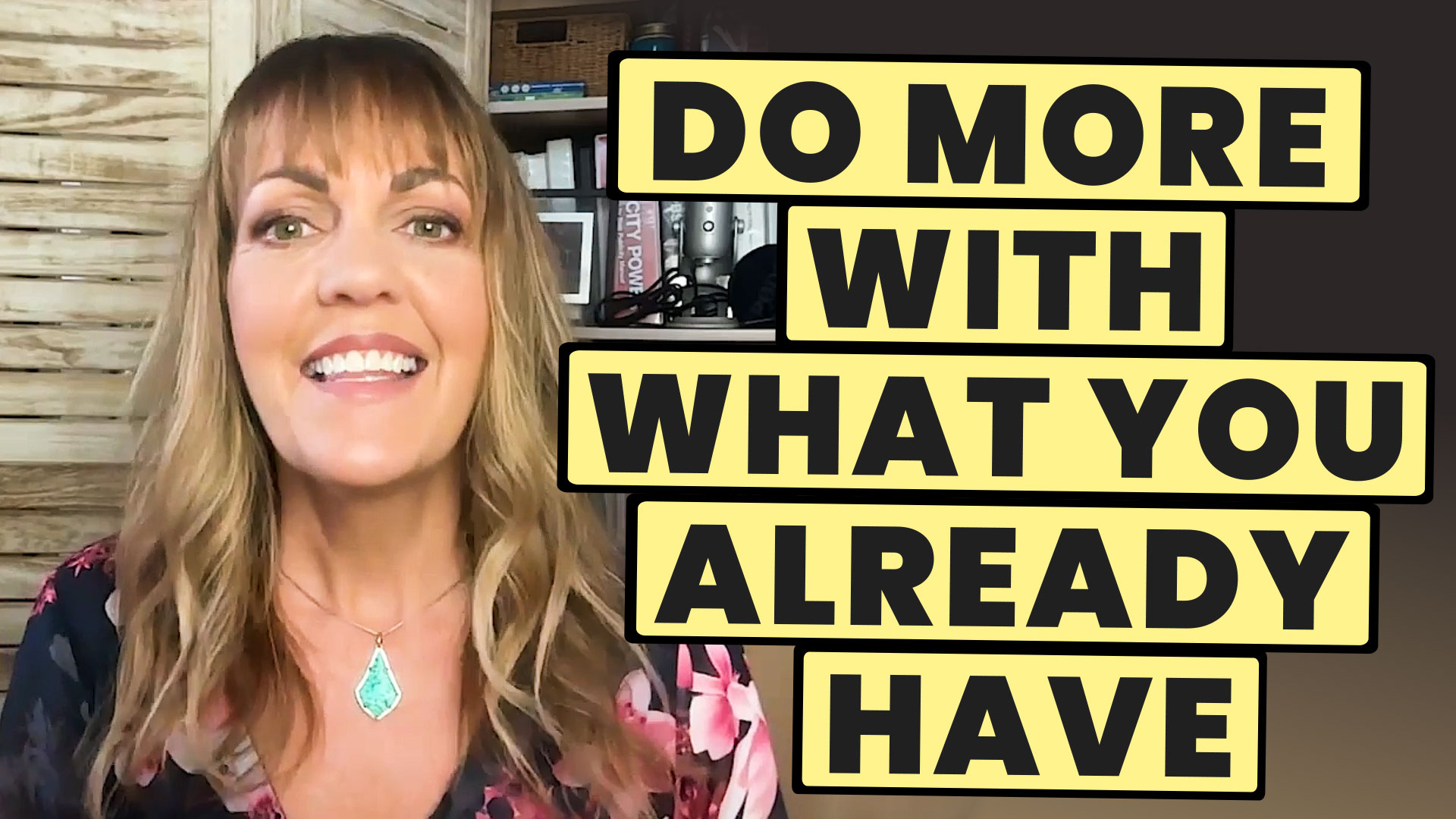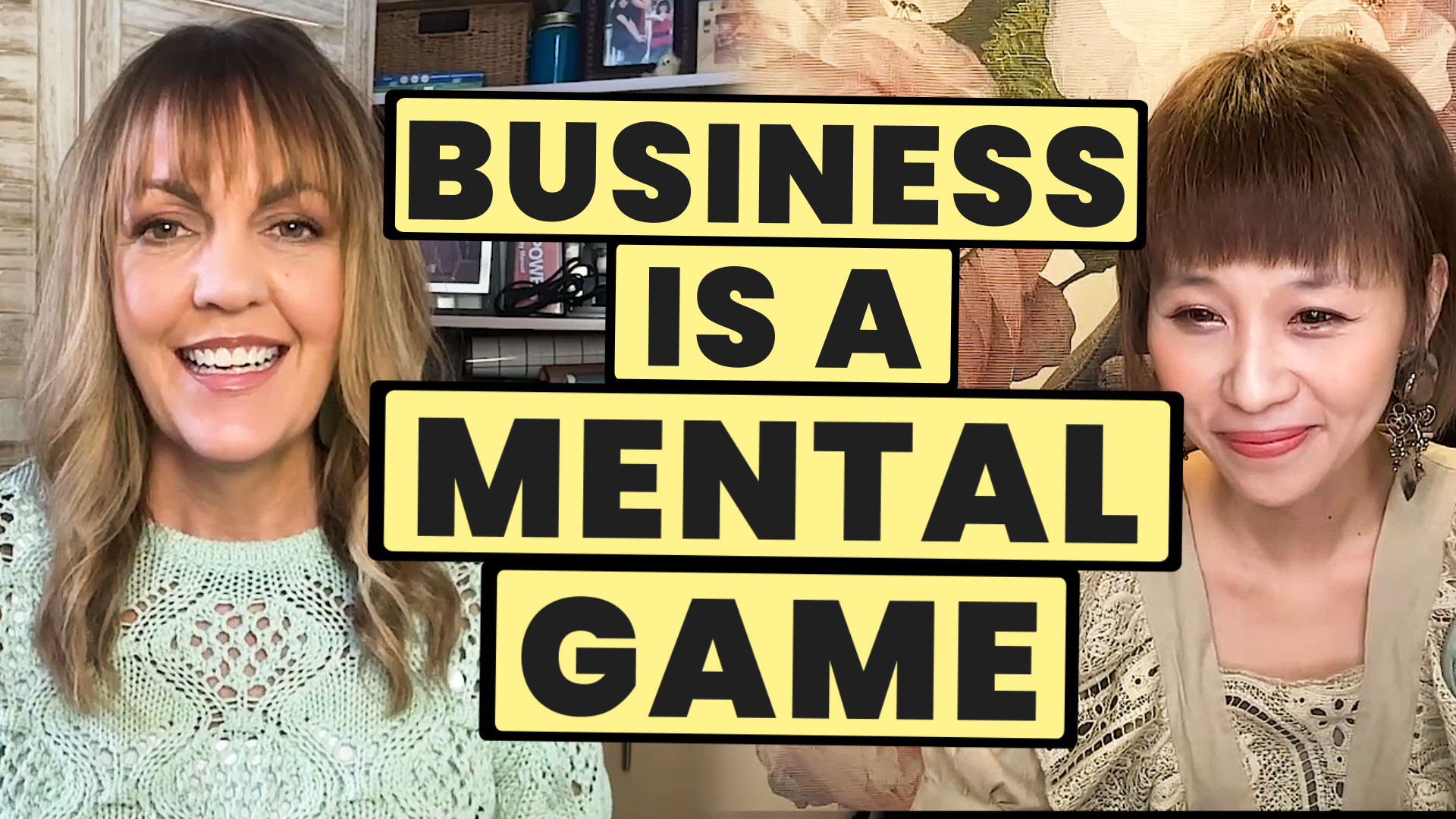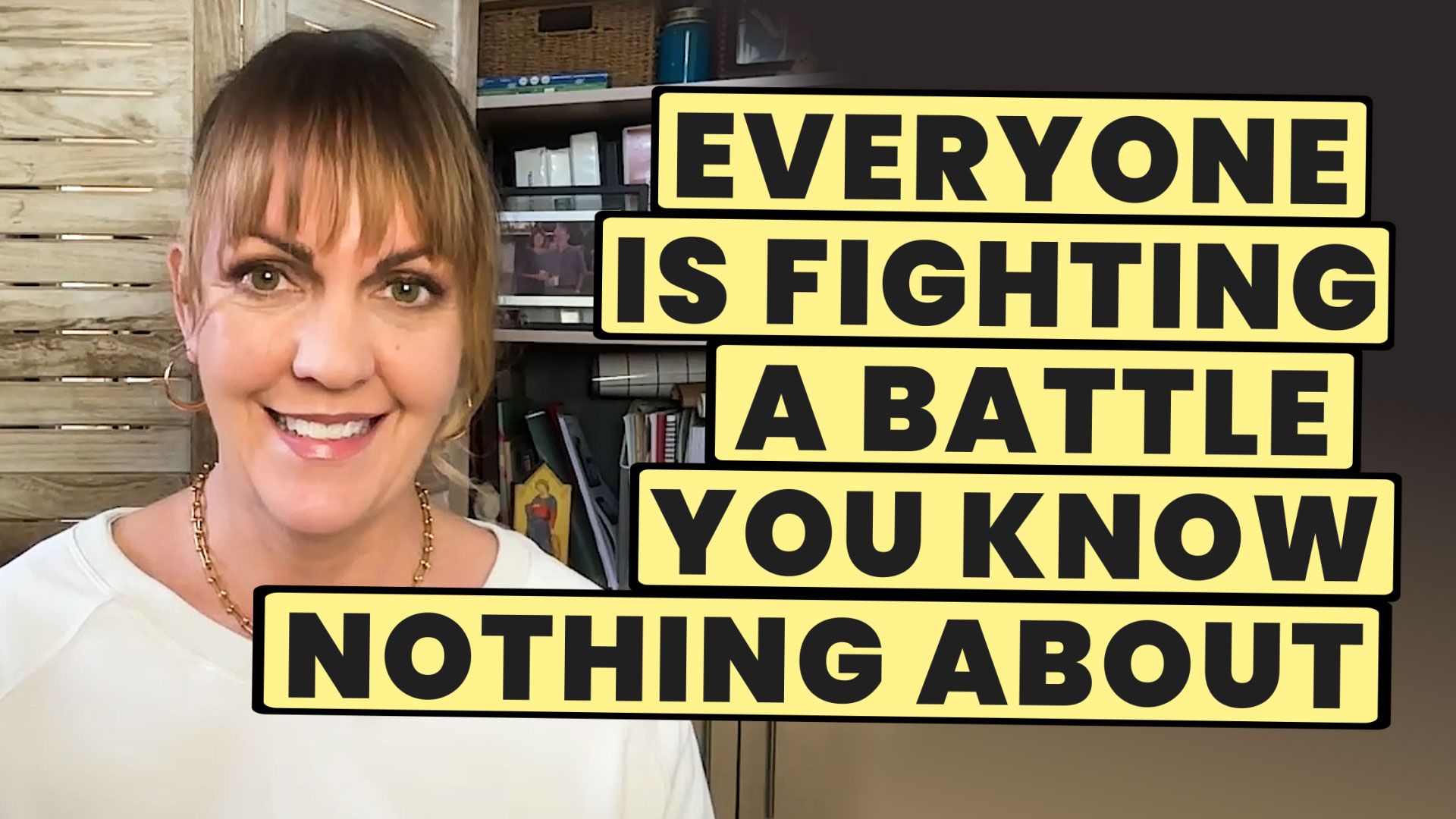Episode 127 Transcript
Heather Porter (00:05.036)
Hello everyone and welcome back to episode 127. There's a new law that has happened here in Australia. It's going to be interesting to you no matter where you are listening in the world. Cause I know we're in like 30 countries. It's amazing. So, hey, shout out to everyone. There's a new law here in Australia that has just come out and it's basically where employees have the right to disconnect after working hours.
Let me repeat that. They have the right to disconnect after working hours. So this new rule or law that's coming into effect basically means that in most cases employees can't be punished for refusing to read or respond to like text messages or emails after hours, after their working hours. That is sad. That is how much hooked we are.
on work in society, specifically Western society too, right? It's crazy. So we have this law coming out and I mean, literally chronic stress is on the rise, right? Even though these rules are being put in place, will we actually listen? Will we? Because it's still so ingrained in us to actually go, you know, I've got to work hard. I've got to hustle. I've got to work hard.
So even though we're being told by the government here in Australia to unplug, it's okay to unplug. Will we do it? Do we even know how? And to add to that, I saw a quote in The Guardian, like the magazine, the newspaper publication, that many Australians have watched their lives shrink in size and lose its color as a direct consequence of the rising cost of living.
And no, this is not a bleak exercise or I should say episode you guys. I'm just, just kind of curious about the stuff I've been seeing. It's like crazy. It's sad. Like they've many Aussies have watched their lives shrink in size and lose color. just think that's such an interesting way of wording it. And I pulled up that quote cause I was looking for this chart that I was, that I came across. I think it was like just.
Heather Porter (02:32.108)
on the news channel and they were reporting on it. And I thought this is really interesting. I wanted to mention it to you guys. And that's the quote that I found that came up. So there's this sort of a chart on what we call consumer sentiment. And it basically shows the general public or population in Australia and how we're feeling as a whole. And what they are showing is that there's an overwhelming sense of bleakness over the last...
two years consistently. And that is worse and longer than what was happening with COVID. And it's actually one of the most pessimistic periods that the general population in Australia are feeling since the mid 1970s. So we have that as well. And then something else that came to me, you know, that I was just researching and I heard this recently being reported as well, is that the Australian government
is investing $7 .7 million over the next two years to continue to provide mental health support for small business owners, such as counseling and therapy, free therapy sessions for small business owners. Because not only is the general population feeling stressed, but we even experience more stress. Wow.
This is insane stuff, you know, that's going on out there. It's sad. It saddens me. It's, it's, none of us are immune to feeling the effects of hustle and that we have to hustle and that we have to work hard because not only is that ingrained in the culture, but it's also with rising cost of living globally and a lot of countries, we're feeling that pinch in different ways as well. So I did a podcast, one of the most popular ones actually.
a while back and it was about the RIS or reticular activating system, which is essentially what you look for, you see more of. And it's sort of that concept of like if you're in the market for a certain car, like a make and a model, you're just going to see them everywhere on the road. So am I looking for this stuff? Am I looking for this? Well, yeah, sort of, because I was thinking about doing a show about it based on all of the previous interviews that I've had.
Heather Porter (04:57.004)
Or is it actually on the rise? I'd say probably both, because I'm seeing it because I'm looking for it, but it is. I feel it is on the rise and to the point where it's now sort of closer to home as well. So I'm a step -mom. I was never able to have my own kids and I have two step -sons that been in my life since they were five and seven and one of them is 21. And even he has changed. Even his little happy
go lucky personality. He's like that one of those guys is like really positive. And he came to us last week and he had tears in his eyes and he's like, I'm sorry to get emotional. I'm like, no, it's cool. Like what do need to talk about? And he said, look, you know, he had this plan to go live and work overseas, but he came to us and he's like, I don't think it's a good idea. And we're like, well, you know, why, why do you think that is? And he said, because I don't want to go spend money.
overseas and have to come back to Australia and start from scratch again. And like we're like, but you know, you're, is this moment in your life where you can go out and have these incredible life experiences and work and, travel and meet people overseas and expand on who you are and learn. And he's like, yeah, but I know, but I feel like I need to save money and I need to try my best to build something for myself. And I feel like if I leave for a year or two,
that I'll not have that. So even, you know, I'm hearing that from him too. So it's just an interesting thing. You know, I feel like us as society, specifically even business owners, you know, we have this added layer of stress that is constantly happening to us and kind of, you know, pulling us in a lot of directions. Not only are we balancing our business and we're paying our team and we're trying to get new clients on board and we're trying to take really good of our current clients.
But we're then looking at our own physical and mental, you know, stability and how we're taking care of ourselves. And then we have our friends and our family. We're being pulled in a lot of directions and it is, it's, it's stressful, right? And we are overwhelmed. And so what I wanted to do is just kind of dive back into my interviews that I've had in this show and look for common themes and just a little micro mini plan to help you reset.
Heather Porter (07:23.988)
and get back on track if you're feeling that really huge weight of the world on you right now. And you maybe don't see like a big light at the end of the tunnel. If you're one of those people, especially in Australia that feel like that bleakness that we have been feeling for two years, if that's you and you're like, I just want to throw in the towel or I don't know how I'm going to climb out of this hole or I'm just not doing as well as I could be. And by the way, on that note,
There are seasonal shifts, as you know, in business, right? and historically June and July are like challenging months, certainly overseas and, and, you know, countries where it's summertime. but even here, there are seasonal ups and downs, so we can lose track of that and start to blame ourselves as well for that too. So whether you're feeling the seasonal pinch or the cost of living pinch, or you're in this sort of bleakness or wherever you are, here are three simple things that you can do.
to try and take better care of yourself and to combat overwhelm. So number one is to create a daily routine. And for this, you want to identify activities that genuinely, genuinely help you rest and relax and recharge. Very, very important. So this can be physical exercise. This can be spending time outdoors. This can be
quality sleep and looking at that. Just mindfulness, you know, being present in the moment more rather than being reactive. Two of my things that I do as part of a daily routine to assist with my overwhelm are number one, I move my body. am stuck at my desk most fully throughout the day because that's what I do for my business website love where digital marketing agency I'm
on zoom calls, I'm managing team, I'm on Slack, I'm there, you know, a lot. So I need to get up and move my body. And that is four times a week, non -negotiable to Pilates unless the instructor's sick or whatever, right? So four times a week to Pilates. And then the other couple of times a week, I do another two walks around my neighborhood. So 30 minute walks around my neighborhood on those other two days, moving, getting out.
Heather Porter (09:47.678)
Exercise right the other thing that I do and I know this is funny But a lot of you guys will probably relate if you have an animal in your life is I will spend time with my cat I have a black cat named Merlin. I love dogs as well. I'm not like a cat or dog person I love both. It's just because I travel and it's harder to manage dogs. So have a cat and For there's there's moments throughout the day where I literally unplug I leave my phone away from me and I
hold my cat or I sit with my cat outside and I stroke his fur and I hang out with him. And for me, I know that spending time with animals is good for your wellbeing and your blood pressure even. Like they've proven if you pet a cat, you lower your blood pressure. So there's a lot of benefits with that, but it helps me get present again as well. So those are two of my things that I do, sort of my daily rituals. And there's more, sure, but those are two that I just, I'm always doing.
so that's number one is create a daily ritual or routine. Number two is have a gradual approach as well. The last thing you need to do is add more stress on your plate. Right? So when you're implementing like new habits or routines, avoid overloading yourself by making too many changes all at once. Focus on integrating, you know, one or two little changes at a time. Like when I first started
getting, moving my body more. I just started doing two neighborhood walks a week. And then I started doing a Pilates class and then that moved to four. And this was over years. It wasn't like a thing that I just started doing overnight. So whatever that looks like for you, there's like a Institute called the Mayo Clinic. Oftentimes if you're Googling sort of health related things, they might come up in your Google results, but the Mayo Clinic.
And they advise that gradual changes are more sustainable and less overwhelming, making it easier to manage stress without adding unnecessary pressure to your life. So gradual change is the key here. If you're starting to, you know, add things into your routine to help you de -stress and manage your wellbeing. Now the third thing, so we have number one, create a daily routine. Number two is have a gradual approach. And number three is develop a quick
Heather Porter (12:08.404)
response plan for stress. So as you're building in long -term change to help you daily, there will always be moments of stress, whether it's putting out fires in your business, whether it's you've lost a huge contract. in my business recently, we were a wholesale business or wholesale company, like a white label company for a very large company that, sent all of their clients to us for meta advertising and overnight.
We lost it. And it's just because they're growing so quickly. They hired, like full -time staff in -house. was stressful. I'm still coming out the other side of that. That was hard. That's going to happen to any of us in business, right? Not, not an indication of how, how bad you do is just changes in, in companies and team and you know, the environment and whatever. Right. So.
But yeah, that stuff will happen. It's just a given in life. And so how do you develop your quick response plan for stress? How do you handle those moments without spiraling? So you need to recognize obviously those moments when your stress are overwhelmed. And then do you have something you can do to shift those moments? For me, I will get up out of my desk and I will walk outside or I'll just walk around my house because I work in my home office.
But I will try and change my perspective and just move, like get away from the computer, do my best to be present, do my best to change my mindset. Sometimes I'll listen to some Spotify songs, whatever that is or podcast or whatever, just to change what is going on for me physiologically. So that is a big one. Now you can also try things like box breathing.
just breathing techniques. I remember a friend and a client of mine, he actually went to breathing school, you guys. He had this huge property company, National, here in Australia, and had a lot of pressure, and there's changing conditions in the market, and he found it difficult to be present. So he went to breathing exercises, like classes, where he learned how to breathe again. Totally, I get it, right? Your breathing is everything.
Heather Porter (14:22.474)
So there could be like exercises that you do and there's one called box breathing, which is really simple and easy. And I'll just share that with you now. So step one, basically it's four steps. So step one is you breathe in counting to four slowly. You really feel the air fill your lungs and be present with that. So you're breathing into the count of four. Step two is you hold your breath for four seconds.
and you tried not to inhale or exhale for four full seconds. Step three is then you exhale counting for four seconds and you step four, repeat step one to three until you feel re -centered. So you're breathing into the count of four, holding for the count of four, out for the count of four. And that is box breathing. So it just gets you back centered, breathing and you know, oftentimes we go into fight or flight.
from overwhelm, we will start to immediately go shallow breathing. So controlling the breath is the big part of that too. So hopefully that gives you guys some ideas. And also, I guess more importantly, I wanted to do this so you know you're not alone. If we have, at least in Australia, laws that are happening to literally get people to not respond after business hours to their employer. And we have government funding to
give therapy and counseling to small business owners. And we have this overall state of bleakness that's going on in our country. I know we're not alone. I know this is very much around the world. This is something that's going on and we need to arm ourselves with strong rituals, ideas, ways of taking care of ourselves. Because as business owners, we're not just taking care of ourselves, we're taking care of our team. We're taking care of our clients.
we have our family and friends. So to finish up, we are a very rare breed. We really are as business owners. We really, really are. We take on way more stress than most people sign up for. And I just wanted to toast you and say, here's to you, brave ones. Here's to you. You are brave for doing what you're doing. And please remember to look after yourself.
Heather Porter (16:44.928)
just implementing little steps in your day -to -day routines could really assist you with your overwhelm. And remember, you don't have to work so hard. So always think about how you can work smarter to get through the more challenging times. Okay, you guys, thank you as always for tuning in and I will talk to you next time.
